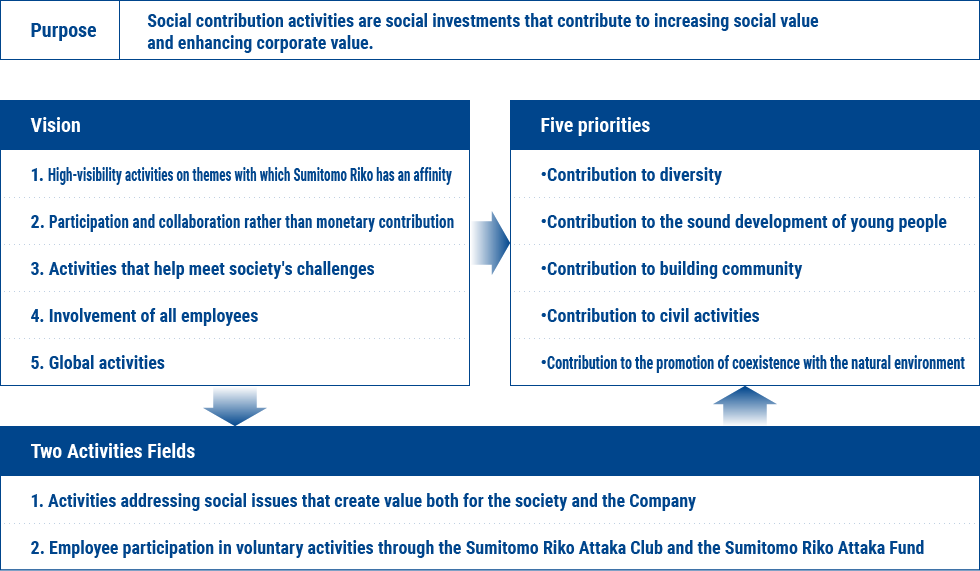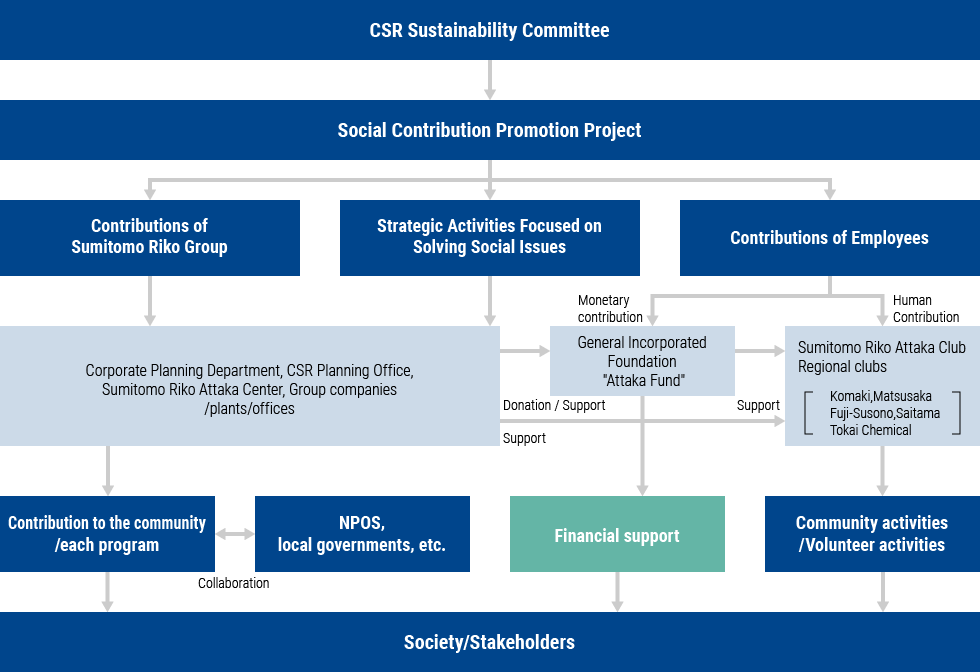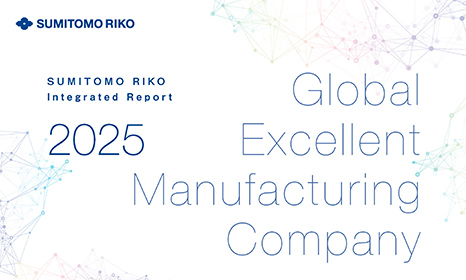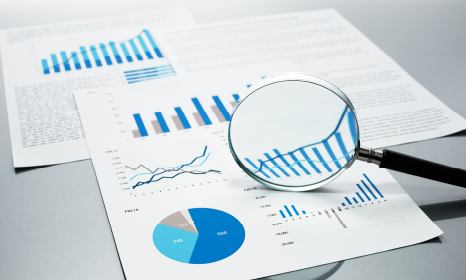Management of Social Contribution Activities
Employees, Local Communities
Social Contribution Activities Policy
The Sumitomo Riko Group is committed to social contribution activities in order to fulfill its role as a public entity of society and to become a company that people say, "I am glad that the Sumitomo Riko Group exists in this town." The core philosophy of our social contribution activities is to "contribute to the creation of a prosperous society through social contribution activities as a good corporate citizen, always aware that we are a member of the local community," and we have positioned these activities as activities to solve social issues.
We are actively engaged in activities based on the concept of creating social value through proactive efforts to solve social issues that contribute to the development goals of the SDGs, while at the same time contributing to the enhancement of corporate value. Also, we have established priority activity areas ("Contribution to Diversity," "Contribution to Youth Development," "Contribution to Community Development," "Contribution to Citizen Activities," and "Contribution to Coexistence with the Natural Environment") to meet social needs.
We are actively engaged in activities based on the concept of creating social value through proactive efforts to solve social issues that contribute to the development goals of the SDGs, while at the same time contributing to the enhancement of corporate value. Also, we have established priority activity areas ("Contribution to Diversity," "Contribution to Youth Development," "Contribution to Community Development," "Contribution to Citizen Activities," and "Contribution to Coexistence with the Natural Environment") to meet social needs.
Philosophy of Activities
The Sumitomo Riko Group shall always be aware that it is a member of the local community, and as a good corporate citizen, shall contribute to the creation of a prosperous society through its social contribution activities.
Framework for Initiatives
In order to realize the Sumitomo Riko Group Activity Principles, we have established "Objectives," "Goals," "Five Key Activity Areas," and "Two Activity Perspectives."

Social Contribution Promotion System
Based on the idea that social contribution activities are a defined activity philosophy, we established the Social Contribution Committee as one of the six committees under the CSR Committee, which was launched in 2005, and have been systematically implementing various activities after discussions. In fiscal 2021, the Social Contribution Promotion Project was launched under the CSR Sustainability Committee to provide comprehensive guidance and promotion of the social contribution activities of the entire Sumitomo Riko Group, from policy formulation, monitoring, and planning of strategic activities to their deployment to each business base.
Sumitomo Riko's social contribution activities are broadly divided into “employee contributions” and “company contributions.” There are two types of employee contributions: human contributions and monetary contributions. In terms of human contribution, we operate the “Sumitomo Riko Attaka Club” for all employees of the Sumitomo Riko Group, which is a matching website connecting employees and “Social Good Activities ”*.
As for monetary contributions, the “Sumitomo Riko Attaka Fund” (incorporated as a general foundation in 2014) has been established, where registered employees can donate a maximum of 10 units, starting at 100 yen per unit, through monthly payroll deductions. The company matches these donations with a matching gift of the same amount.
As for the company's contributions, various social contribution programs are studied and formulated by the Social Contribution Promotion Project, and the CSR Promotion Office serves as the secretariat for implementing each program. In addition, the “Attaka Club” and “Attaka Fund,” which support the contributions of employees, are operated by each group companies and plants to link the company's contributions with those of its employees.
Sumitomo Riko's social contribution activities are broadly divided into “employee contributions” and “company contributions.” There are two types of employee contributions: human contributions and monetary contributions. In terms of human contribution, we operate the “Sumitomo Riko Attaka Club” for all employees of the Sumitomo Riko Group, which is a matching website connecting employees and “Social Good Activities ”*.
As for monetary contributions, the “Sumitomo Riko Attaka Fund” (incorporated as a general foundation in 2014) has been established, where registered employees can donate a maximum of 10 units, starting at 100 yen per unit, through monthly payroll deductions. The company matches these donations with a matching gift of the same amount.
As for the company's contributions, various social contribution programs are studied and formulated by the Social Contribution Promotion Project, and the CSR Promotion Office serves as the secretariat for implementing each program. In addition, the “Attaka Club” and “Attaka Fund,” which support the contributions of employees, are operated by each group companies and plants to link the company's contributions with those of its employees.



